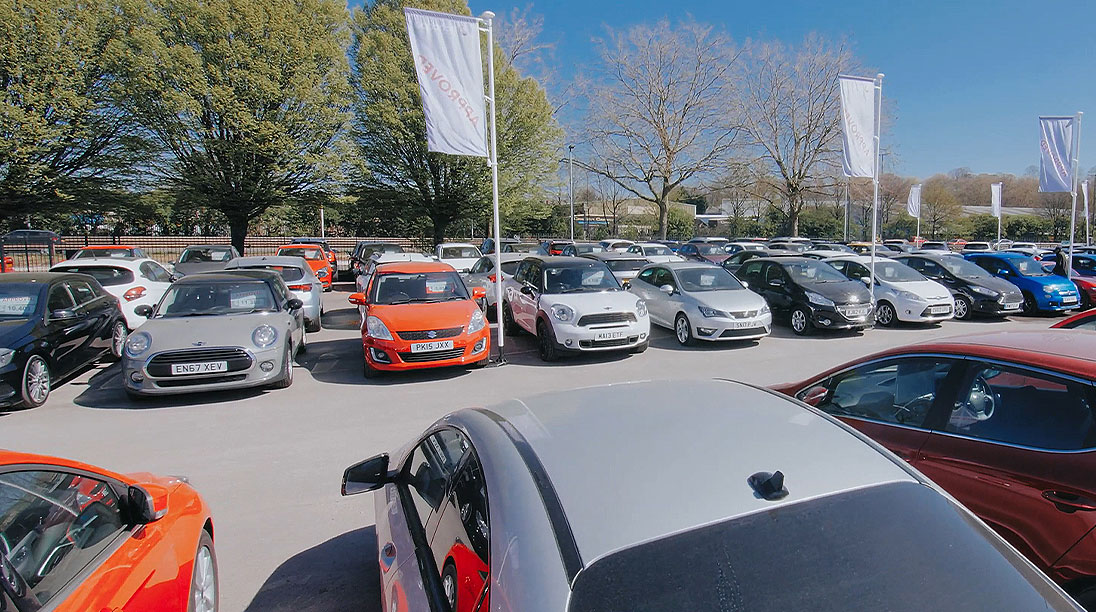UK-based global automotive distributor and retailer Inchcape plc announced this week that it plans to open 20 used-car outlets in industrial districts in the UK as it slashes its involvement in new-car retailing.
It said its used-car locations would adjoin “fast-fit” aftersales facilities and be open for business by the end of this year. Six locations have already been opened.
The focus on used cars comes as Inchcape continues its plan to move away from new-car retail with the £70 million ($A126 million) sale of its Toyota and Audi dealerships in St Petersburg, Russia.
It already disposed of seven dealerships and its fleet solutions operation in 2019 and 13 UK dealership locations and two in Australia in 2020 as it increased its distribution business.
The Inchcape move away from new-car retail has been so large that the listed company has been reclassified by the London Stock Exchange to remove reference to its business being retail.
Pitcher Partners consultant Wayne Pearson told GoAutoNews Premium that there is a link to the move towards used-car operations and a pull back in some new-car business.
He said that in Australia, this link is the increased interest in the agency model.
“My view is that agency is being introduced as the precursor model to selling EVs locally,” he said.

“With the move from internal combustion engines (ICE) to EVs the whole value chain changes as cars go from being ‘owned’ and sold under finance to being ‘used’ and paid for under a fully maintained rental via a bundled electricity plan with your home/office/business. Much like a mobile phone plan.
“This change means the OEM needs to step in and become the dealer (who owns stock, transacts with customers directly, controls marketing, etc) and the dealer becomes a commissioned agent (test drives cars, delivers stock, etc) but doesn’t transact with the customer.”
Mr Pearson said that based on this, for dealers to survive and stay “dealers” they need to refocus their attention on their opportunities to transact with customers and make a profit.
“That area is in used cars,” he said.
“These used cars will have two streams: Used cars which were previously new cars delivered in Australia, and parallel imports which will provide competitive variants to the OEM new stock.
“Parallel imports are the dealer’s new best friend as they give them the chance to compete directly with the OEM on product while still being able to keep their own customers in their own business.”
Mr Pearson said that if this was “done properly by the dealers, this could see a big shift in volumes similar to what happens in New Zealand where the new-car market declines to much smaller volumes and the parallel import market dominates.
“This gives the dealer access to all their traditional income streams particularly when they are under attack by agency models and also the expanding EV products,” he said.
“The large groups know this, hence their push into the used-car business and their desire to get growth and geographic footprint so they can partner up nationally with the parallel importers.

“I see Inchcape just doing a similar thing in the UK.
“I think you will see a push from the larger dealer groups and the AADA for a relaxing of the importation rules over the coming year or so.”
In the UK, Inchcape’s move into used cars follows three similar transitions by other UK players including Pendragon which announced late last year it would overhaul its used-car sales operations.
It plans to restructure around a hub-and-spoke model incorporating eight purpose-built £7.5 million ($A13.5 million) car supermarket sites designed to fulfil end-to-end digital sales and home delivery. Pendragon also sold five US new-car dealerships with JLR and Chevrolet franchises.
Funds from the US sales are being used for its used-car ventures. Pendragon said in a statement that the UK was “the most attractive used-vehicle market globally, with a ratio of over three used vehicles sold for every one new”.
UK’s Peter Vardy Group also said it would rebrand and expand its used-car retail division. It plans to cease its six Vauxhall franchises by the middle of this year and transform the dealership sites into used-car supermarkets as part of the move to create the Carz operation, which will also drive online sales using the group’s digital platform.
A third UK company bolstering its used-car interests is the JCT600 company’s launch of its own standalone used-car locations.
Inchcape’s used-car retail sites are being established in industrial units as the company’s chief executive James Brearley said in a statement that its previous franchised locations were expensive and poorly-configured for used cars.
The plan to expand its used operations also includes the premises each having about six workshop ramps to deliver fast-fit servicing for car preparation.

Wayne Pearson
Inchcape aims to sell 100 cars a month from each site and have a minimum of 180 vehicles in stock.
A key to the profitability expected from the business model is striving to minimise costs.
In an interview with AM Online publication, Mr Brealey said: “We have an omnichannel platform but we understand low-cost facilities, low-cost preparation to a high standard and the distribution costs.
“We definitely can deliver to someone’s house, at a cost, but we believe that there’s no demand from consumers for that whatsoever,” he said.
“We absolutely believe that people want to test drive cars and have seen that in the spike of activity that’s been seen since the lockdown was lifted.”
Inchcape has about 6500 used vehicles in stock with about 40 per cent coming from dealership trade-ins. Mr Brearley said this achieves a marketing cost of the equivalent of $A94 per unit.
Speaking to AM Online, Mr Brearley said Inchcape could maintain its stock volumes, despite the current shortage of used cars entering the market, and pay the extra prices because it reduced the number of cars taken to auction.
“When I joined Inchcape there was a tendency to remarket something that was over five years old or 50,000 miles (80,000km). Now it’s more like 10 years and 80,000 miles (128,000km), depending on the car,” he said.
“Looking at the two established sites, they are making a six per cent return on sales and we are very comfortable with that.
“We’ve opened three more sites this year, another two will open in Q2 and next year we’ll have 17 to 20 primarily sites around the areas that we dominate in the North West, East and West Midlands.”
By Neil Dowling












 Read More: Related articles
Read More: Related articles

